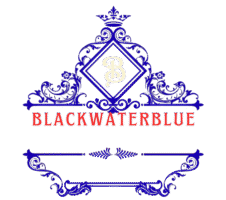Online gaming has redefined what it means to play in the 21st century. It has evolved from simple, pixelated screens into vast, immersive universes where millions of players from across the globe gather to connect, compete, and collaborate. In just a few decades, it has grown from a subculture into one of the largest and most influential industries in the world — and its impact continues to expand beyond entertainment.
At its core, online gaming is about interaction. Unlike traditional games or single-player experiences, online games thrive on connection. Whether players are teaming up to defeat a common enemy, building a virtual world together, or facing off in intense player-versus-player matches, the presence of others makes every session dynamic and unpredictable. This interaction creates a powerful sense of community — and for many, gaming becomes a shared ritual rather than a solo pastime.
These communities often develop their own cultures, complete with inside jokes, shared goals, and unspoken rules. Players join guilds, clans, or alliances and participate in ongoing activities that span months or even years. The bonds formed through these virtual spaces can be surprisingly strong. Friends made through games often keep in touch outside of them, and some even meet in person — proof that digital relationships can be just as meaningful as face-to-face ones.
A major reason online gaming resonates with so many people is the freedom it offers. Players choose how they want to play and who they want to be. From customizing avatars to choosing story paths or building entire digital landscapes, games give players agency. This ability to explore different roles and identities is particularly empowering — especially in a https://afgbf.com/ world where real-life opportunities for self-expression may be limited.
Online gaming is also deeply tied to creativity. Some of the most popular games today — such as Minecraft, Roblox, and The Sims — are platforms that encourage players to build and share. Whether designing a futuristic city, crafting a challenging obstacle course, or telling an original story, players become creators in their own right. The lines between player and developer are increasingly blurred as user-generated content becomes an essential part of the gaming experience.
Of course, online gaming isn’t without its complexities. With so many people sharing virtual spaces, issues like toxic behavior, cheating, and unhealthy competition can arise. Fortunately, game developers and communities alike are investing more effort into moderation systems, player support, and promoting positive conduct. The goal is not just to make games fun, but to ensure they are welcoming and fair to everyone.
Looking ahead, the future of online gaming promises even more integration with daily life. As virtual and augmented reality improve, the separation between real and digital experiences will continue to fade. Games may soon become common tools for education, collaboration, therapy, and beyond.
In many ways, online gaming has become a reflection of our broader digital age — fast-moving, highly connected, and full of possibilities. It’s not just a way to escape reality, but a way to reimagine it, together.
